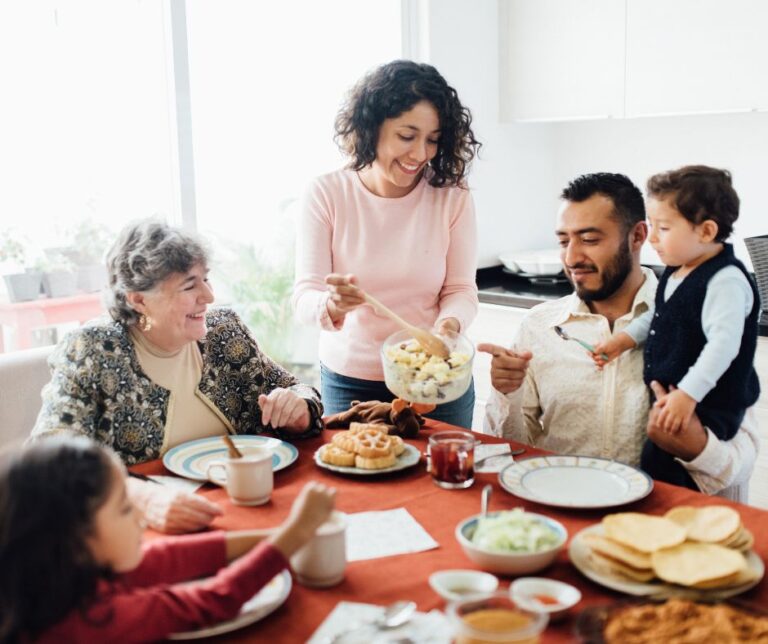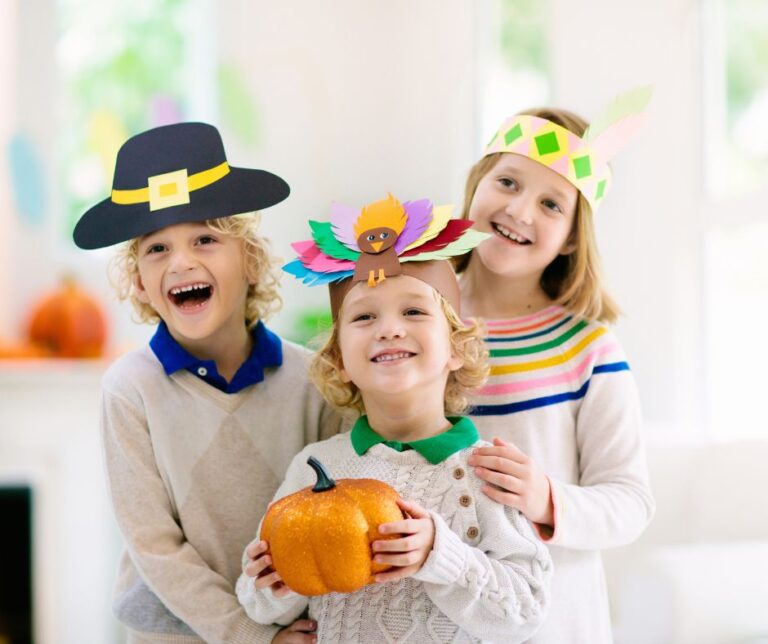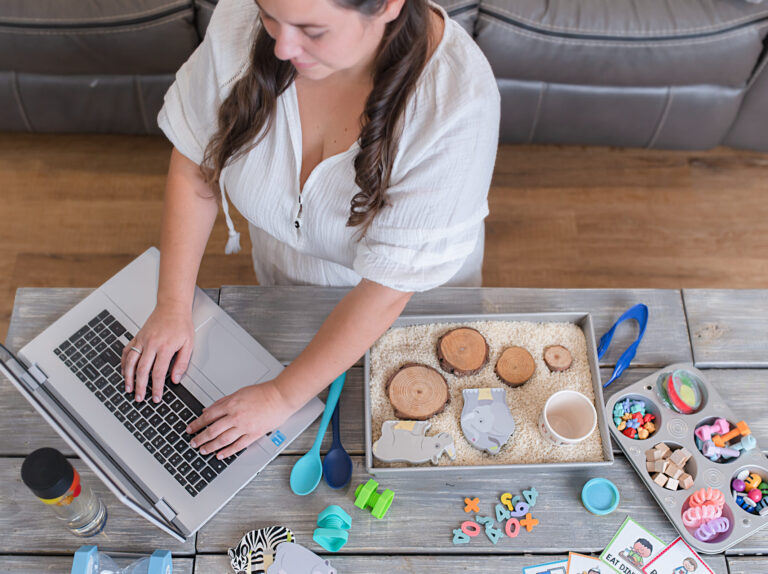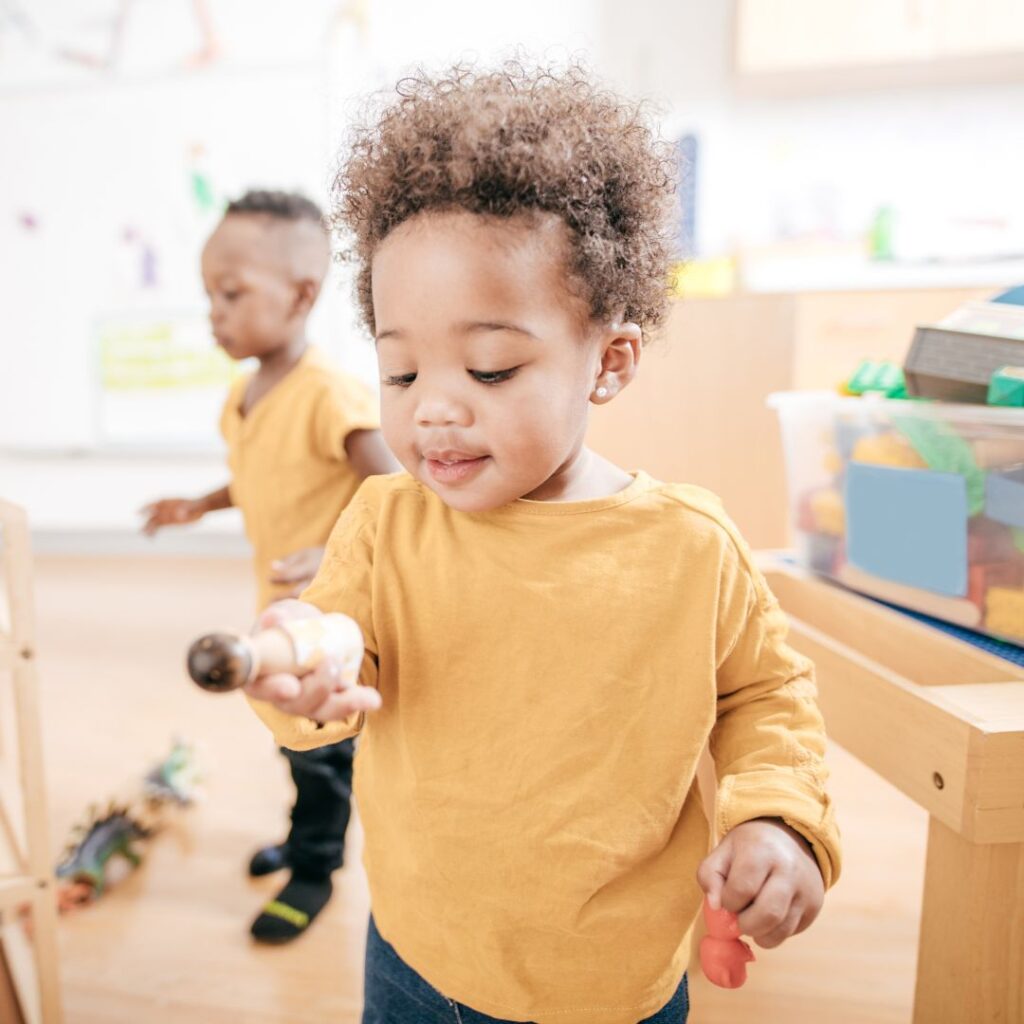Are you still having nightmares from last years holiday get togethers? I am !
The jumping on Papa’s couch, getting up and down repetitively from the thanksgiving table, running after Gigi’s cats every time they came out, the yelling, and my absolute most cringeworthy moment from last holidays family get together… tackling Great-Granma and almost knocking her to the floor.
Holiday get togethers are overwhelming for everyone, but for people with sensory differences the holidays (and holiday expectations) can be down right dysregulating! The change in routine, the lights, sounds and smells, the dress clothes they don’t usually wear, new environment and people in your space. I cant help you pretend to like Aunt Maggies fruit cake, but I can give you my favorite tips to help your high energy sensory seeking kids during busy holiday events and get togethers.
Prep, Prep, Prep!
A LOT of important work can be done before we even get to the holiday party. This is what occupational therapists like to call “front loading”. Front-Loading is when we “stay ahead” of the potential sensory challenges by “filling our sensory cup” with activities that are regulating for the nervous system. It is MUCH more effective than trying to use a calming strategy once an individual is already in a heightened state. Some ways to prepare before the event is to Set expectations. Knowing what you are walking into makes a big difference. Some ways to prepare are:
Reminisce about last years get together. “I remember last year when there were 13 of us around the Thanksgiving table! There was Uncle Ted, Nana…. It sure got loud didn’t it” or “ Can you remember at the Christmas party when …. For younger kids try using pictures from the day- “Wow there were a lot of us around that table- can you count how many of us there were? This year there will be 17 of us!”
Talk about a tentative schedule. Use simple language for younger children. First we are going to drive to Grandpa’s house it takes about 2 hours. When we get there we will wait for every one to arrive (there are 17 of us this year!), and then we will sit down for a family dinner. You can make a social story if you would like to also!
Stay hydrated and eat a balanced meal or snack before getting there. Hangry + sensory is a recipe for dysregulation. I know it seems obvious but I often find myself so busy with packing, and excitement that I realized I haven’t eaten or had a sip of water the whole day!
Review calming strategies that are well established. Holiday events are not the time to try to teach a new calming technique. I prefer to bring it up in a casual conversation, because you know when kids feel like they are being “told” to do something that you may be met with resistance. I like to talk about what I am going to use, or what MY favorites are. “It helps me a lot when I do some quiet chair push-ups when I start to get wiggly at the table, what helps you when you get wiggly?”
Set Expectations
Now that our child is prepared for what to expect (as much as we know or are able to predict) we want to talk about expectations- for the child AND the parent. Clearly state your expectations- those will of course be different for every family and every event but a clear and simple expectation such as “During the family dinner we are expected to sit down while we are eating. If you get too wiggly you can excuse yourself and I will meet you over there to do some breathing”. Make expectations realistic and doable for your child. My family likes to sit around the table for a whole 2 hours (literally) and that is just not a possibility when it comes to sensory seekers.
“If I see that you are starting to get silly and jump on Gigi’s couch Daddy will help you go outside by the car and do hopscotch, OK?” Remember to check in with your body. I know that in big crowds and during exciting times like when we are all opening presents it can make our bodies really excited and really wiggly. If I see that you are getting too wild for grandpas house I will help you find a way to calm or to go take an outside break.
Tell your child what they can expect from YOU. “Remember my job is to keep you safe, so if you are feeling overwhelmed, or like you need a break, worried, or sad- you can come find me or Dad and we will help you.
Provide an Out/ Make an escape plan:
That building feeling of anxiety when you are trapped in a situation you know you are going to struggle- that’s how our high energy kids can feel during indoor holiday events. Make an escape plan and practice it with your child. Here is an example: When you check in with your body and realize you need a break, or when I help you realize its time for a break- we are going to hold hands and walk to the car together. In the car we have the bag you packed with a few movement games like jump rope, yoga cards, Simon says, blow bubbles for some deep breathing. When we are finished we will hold hands and return to the party so we can go back to being with our family. Just knowing that there is an out can help with that build up of emotions. And in my experience it is much easier on all parties to just leave and take a break, and return more regulated rather than attempt to do calming strategies in front of family during a gathering.
The holiday scaries are a real thing for parent of high energy kids. Make a plan, involve your child, practice and prep before the event. The day of the event the whole family will be more prepared to handle dysregulation and big emotions because you have a plan in place!








